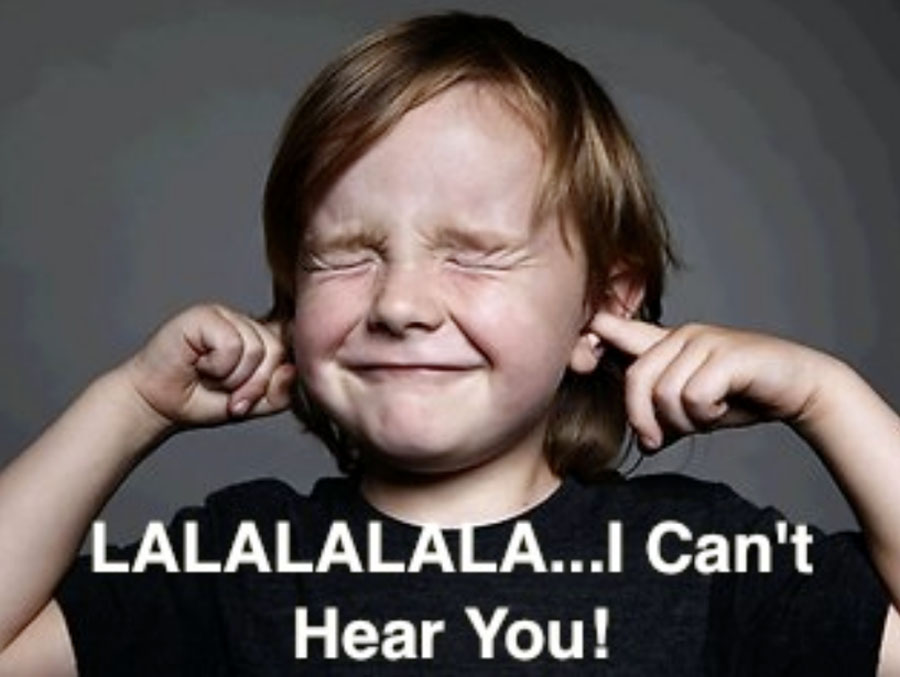Unsolicited Advice
Just Take the Damned Compliment

The gig is over. You leave the stage. Someone turns to you and says, “You played great.” What do you do?
If you’re like most of the musicians and other creative people I know, I know what you almost certainly do not do, which is to just take the damned compliment. You’ll make a joke, you’ll redirect, you might even let them know you saw it differently. But you won’t say the correct and only appropriate words for the situation: “Thank you.”
“Thank you” is not what I said when, at a recent gig, I left the stage and someone else on the gig complimented the way I’d comped (accompanied) a singer. “Oh man,” I said. “She did great!” said I. Maybe she did, dweebo, but that’s not what the guy said.
“Just take the damned compliment,” said the complimenter, correctly.
Two words. “Thank you.” It should be easy peasy, right? And yet, so many of us find it so damned difficult pifficult. Why?
Self-Consciousness
The first reason might be shyness. We simply may not want attention brought to us. I have a slice of this, to be sure. So rather than engage in the conversation, we try to shut it down or direct it elsewhere.
“Everyone was on fire tonight!”
“You killed! I loved that solo!”
Of course, doing this tells the person who just made a point to tell you, personally, that he or she appreciated you, that their kind intentions are unwelcome, mistargeted, or unheard. This is not a good look.
The solution? Just take the damned compliment.
Insecurity
Sometimes the fact is we don’t have the slightest idea how things came across. In those moments, some people need to hear from the “outside” how it went. A person complimenting us presents a built-in feedback opportunity—I mean, they’re here, they saw the show, and they are mentioning something to us about it. So, we sometimes feign disbelief or confusion in an effort to mine more data from them.
“I love your voice.”
“Oh, no way, I thought I was off tonight. It really sounded okay out front? I didn’t sound hoarse?”
This is a fishing expedition. It is using proximity to recruit someone for a mission they didn’t sign up for—specifically, you are saying, “Keep telling me more about me.” This tells the person that whatever their agenda might have been in that moment, they have now found themselves in service of a brand new one, basically that of a mother bird feeding a nest full of starving babies, and it’s likely to leave the complimenter sorry he or she said anything.
Don’t go fishing just because someone hands you water. Just take the damned compliment.
Fear of Future Disappointment
Sometimes we fear that if we accept a compliment, we’re setting ourselves up to disappoint the complimenter in the future. So, we try to lower our stature, and therefore their expectations. We diminish our ability in an effort to keep the bar nice and low for next time.
“I was just trying to keep up!”
“Oh, man, I never feel very good about my playing.”
This tells the person complimenting you that their understanding of what is good and bad is primitive and inaccurate. Another fashion don’t. Just take the damned compliment.
Imposter Syndrome
Underlying all of these possibilities is the most common and likely reason that we suck at taking compliments: the Douchebag Inside Your Head. This compliment, innocuous and well-meaning as it was, may have hit the part of us that felt the real story of the night was a much better musician elsewhere on the stage. Or, more likely, it may come after we have endured a sustained assault by whoever voices our internal narrator. Right after a gig is over, many of us are only thinking of the “parade of horribles” we feel we unleashed upon an innocent and unsuspecting world. We’re inside ourselves. We only notice what we got wrong. We are trying to figure out what we will do with the rest of our lives now that this gig has clearly ended our careers and probably our tenure in this time zone.
Then, in the midst of this suck-swarm, someone says the exact thing we know to be untrue—that we were good, not the flung-monkey-poo we know ourselves to have been—and we flat-out don’t believe them. We think they must be pitying or condescending. Or maybe they just felt they had to say it to us because we got to them before the person they really meant to say it to got there. Moreover, we definitely don’t want any attention brought to the natural disaster that was our evening, because even if this one misinformed person might not have been attuned enough to notice a dumpster on fire stage next him, the next person surely was.
So, we play both sides against the middle. We make a joke that paints us as humble and undeserving. This defends against the possibility—by which we obviously mean certainty that burns with the energy of a thousand suns—that others who hear this compliment will be as aware as we are that we were, in fact, King Failure of Can’t Play a Note Land. We adopt the language of humility in service of appeasing the (entirely internal) chorus of crapitude.
“Oh, good to know I can still fool people sometimes.”
“I guess the sound wasn’t so good on your side of the stage!”
Ha ha, super funny and slick. Except that when we do that, we are telling the person complimenting us that they were too stupid or misinformed to know any better. This is not your #bestself. Internal turmoil is not an excuse for external dickishness. Just take the damned compliment and let the internal tea kettle settle down on its own time.
We Suck at Surprises
I stumbled on this explanation when preparing this column and had never considered this component. According to Tania Luna and LeeAnne Renninger in their book Surprise: Embrace the Unpredictable and Engineer the Unexpected (as cited in a Harvard Review article by an author named Christopher Littlefield), the underlying culprit is likely our very primal response to being surprised. In moments of surprise, first we freeze. Our dopamine levels rise and our thoughts race. Then, to regain control of the moment, we try to explain to ourselves what is going on (“Oh, they just don’t know any better”). Eventually we recast our understanding of the encounter and may even attempt to share our experience with others. In a way that is what the complimenter is doing, too. But this is after these initial steps in the “Surprise Sequence.”
When we get off stage or end something similarly intense, we don’t expect to be complimented afterward. Even if we somehow imagined ourselves deserving of praise, we don’t expect to receive it. So, when it comes, we are surprised, and we often flounder.
“I made so many mistakes! I guess I’m glad people couldn’t tell!”
“I really need to warm up before gigs like this!”
To avoid insulting the complimenter in that moment, the trick is to remember that compliments are about connection. The person complimenting you is sharing something about themselves. It’s not really about how you played, it’s about their experience while you played. They, too, were surprised—in real time. It was a good surprise that left them wanting to share their perception with the source of it. So, they sought you out to connect with you over it. It was meaningful to them for their own reasons, and they were moved to share that information with you.
It’s hard to remember all these mechanisms in the heat of battle. But getting good at it over time is better than returning fire against an ally as if he or she is the enemy.
So just—say it with me—take the damned compliment. Say thank you, as you would to anyone who shared anything they had with you. Then leave it at that. Or, if you’re uncomfortable being so terse, add an honest follow-up: “That means a lot to me.”
Stifle the rest of your primal urges and wait for the panic to pass. You’ll make them feel good about having complimented you—and you having heard it in the spirit in which it was intended—and you won’t have to add a “Tanked That Compliment” float to the endless and thankless Parade of Horribles.
Is there something I should offer unsolicited advice about in future columns? Shoot me a line via the contact form at joshweinstein.com and let me know.






